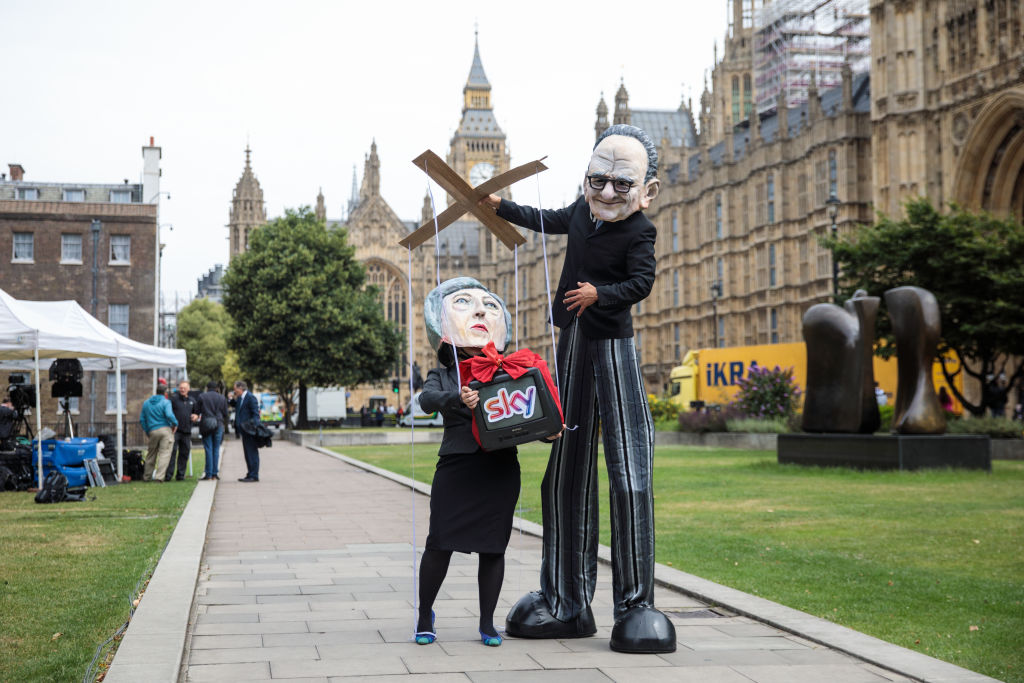Britain's competition regulator rules that Murdoch's purchase of Sky is 'not in the public interest'


A free daily email with the biggest news stories of the day – and the best features from TheWeek.com
You are now subscribed
Your newsletter sign-up was successful
On Tuesday, Britain's top competition regulator, the Competition and Markets Authority (CMA), provisionally rejected 21st Century Fox's bid to buy 61 percent of satellite broadcaster Sky because it is "not in the public interest." The CMA was looking at two questions — would the proposed merger lower broadcasting standards in Britain and would it give Rupert Murdoch and his family too much control over British media and opinion; it said no to the first question and yes to the second. Sky, owner of Sky News, and Fox will respond to CMA's objections and proposed workarounds, and Culture Secretary Matt Hancock will make the final decision by the middle of May.
Murdoch has been trying for years to purchase full control of Sky, which he launched in the early 1990s, and in December 2016 he made a $16.3 billion offer. But the CMA noted that the Murdoch Family Trust controls news outlets watched or read by nearly a third of the U.K.'s population. "Media plurality goes to the heart of our democratic process," Anne Lambert, chairwoman of the CMA's independent investigation group, told BBC News. "It is very important that no group or individual should have too much control of our news media or too much power to affect the political agenda."
The CMA said that to mitigate its media plurality concerns, 21st Century Fox could call off the deal, sell or divest Sky News, or put in place "behavioral remedies" to wall off Sky News from Murdoch Family Trust interference. Murdoch's sale of most 21st Century Fox assets to the Walt Disney Co., if completed, could also mitigate those concerns.
The Week
Escape your echo chamber. Get the facts behind the news, plus analysis from multiple perspectives.

Sign up for The Week's Free Newsletters
From our morning news briefing to a weekly Good News Newsletter, get the best of The Week delivered directly to your inbox.
From our morning news briefing to a weekly Good News Newsletter, get the best of The Week delivered directly to your inbox.
A free daily email with the biggest news stories of the day – and the best features from TheWeek.com
Peter has worked as a news and culture writer and editor at The Week since the site's launch in 2008. He covers politics, world affairs, religion and cultural currents. His journalism career began as a copy editor at a financial newswire and has included editorial positions at The New York Times Magazine, Facts on File, and Oregon State University.
